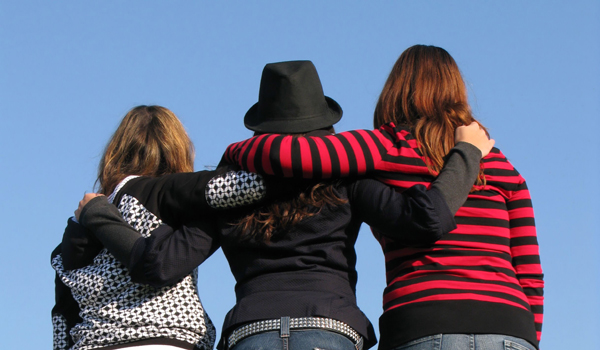Girls Struggle More When Friends Let Them Down

Get the world’s most fascinating discoveries delivered straight to your inbox.
You are now subscribed
Your newsletter sign-up was successful
Want to add more newsletters?

Delivered Daily
Daily Newsletter
Sign up for the latest discoveries, groundbreaking research and fascinating breakthroughs that impact you and the wider world direct to your inbox.

Once a week
Life's Little Mysteries
Feed your curiosity with an exclusive mystery every week, solved with science and delivered direct to your inbox before it's seen anywhere else.

Once a week
How It Works
Sign up to our free science & technology newsletter for your weekly fix of fascinating articles, quick quizzes, amazing images, and more

Delivered daily
Space.com Newsletter
Breaking space news, the latest updates on rocket launches, skywatching events and more!

Once a month
Watch This Space
Sign up to our monthly entertainment newsletter to keep up with all our coverage of the latest sci-fi and space movies, tv shows, games and books.

Once a week
Night Sky This Week
Discover this week's must-see night sky events, moon phases, and stunning astrophotos. Sign up for our skywatching newsletter and explore the universe with us!
Join the club
Get full access to premium articles, exclusive features and a growing list of member rewards.
Girls have a harder time coping than boys when a friend disappoints them, a new study suggests.
Girls in the study reported feeling more anger and sadness, compared with boys, when a friend violated their expectations of friendship, such as by telling their secrets, the researchers said.
In addition, girls were just as likely as boys to report that they would seek revenge against the offending friend.
The findings contradict previous research suggesting girls are better at friendships than boys, the researchers said.
The study has implications for how to help children maintain their friendships in a healthy way, especially for girls when a friend is unreliable, doesn't provide emotional support or betrays them, the researchers said.
"When we try to help children who are struggling in their friendships, we may need to focus on somewhat different issues for boys versus girls," said study researcher Julie Paquette MacEvoy, an assistant professor at Boston College's Lynch School of Education. "For girls, it may be critical to help them learn how to better cope when a friend lets them down."
MacEvoy, who conducted the study while at Duke University, and colleagues surveyed 267 kids ages 9 to 11. The children were shown 16 hypothetical stories in which they were asked to imagine that a friend violated a core expectation of friendship. These stories included a friend failing to hold up responsibilities in a joint school project, resulting in a bad grade for both friends, and a friend shrugging off the seriousness of another friend's sick pet, saying, "It's no big deal, it's just a pet."
Get the world’s most fascinating discoveries delivered straight to your inbox.
The children were asked how they would feel if the incident really happened to them, how they would interpret the friend's behavior, what they would do and how much the incident would bother them.
Girls were more bothered by the transgressions, felt more anger and sadness , and were more likely to think the offense meant their friend did not care about them or was trying to control them, the researchers said.
For both genders, the angrier they felt, the less likely they were to want to fix the relationship.
Sadness had the opposite effect. The more sadness the children reported feeling, the stronger their desire was to want to solve the problem and maintain the friendship.
In this way, sadness can sometimes function like "social glue" that holds relationships together , the researchers said.
Pass it on: Girls have a harder time dealing with transgressions in friendship.
- 5 Reasons Being a Woman is Good For Your Health
- 5 Ways Relationships Are Bad for Your Health
- Your Most Awkward Friends May Save Your Life
Follow MyHealthNewsDaily on Twitter @MyHealth_MNHD. Find us on Facebook.
 Live Science Plus
Live Science Plus






